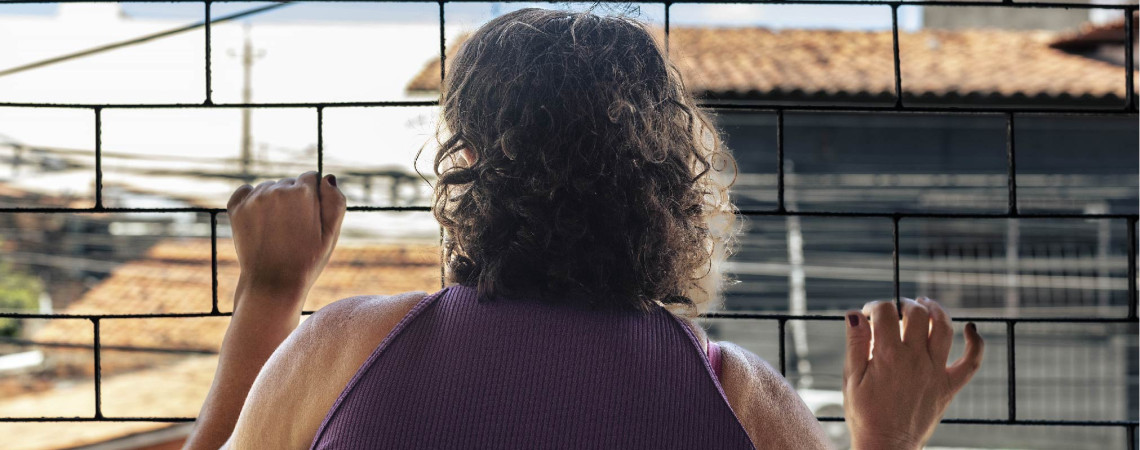
Living in the shadow of armed violence

In 2022, Brazil's homicide rate rose to 23.4 people for every 100,000. That's 47,508 murders. In many towns, armed groups are clashing with police and security forces or fighting among themselves over territory and local economic resources.
For the people living there, the effects are profound. Some are obvious, like the number of people wounded and killed, but others are more subtle, like the disappearances, the people forced from their homes, the deterioration in mental health, and the lack of access to essential public services like health care and schooling.
Invisible effects of armed violence
Lack of access to essential public services
Armed violence creates a series of obstacles for people trying to receive essential public services, for workers trying to provide them and for the authorities trying to run them.
In very fragile and dangerous environments, services are often interrupted to protect the safety of the people providing and receiving the services. For example, health procedures might have to be put off, social services might be delayed, and schools might even be closed. In Rio de Janeiro, 74% of the schools in the district experienced at least one shooting in 2019, according to data from the Instituto Fogo Cruzado that (Crossfire Institute).
Disappearances
Thousands of Brazilians are living with the pain and uncertainty of not knowing what has happened to a loved one. In 2022, 74,061 people were reported missing in Brazil – 203 per day on average. Some of them disappeared in connection with armed violence. Of these, 39,957 people were found (dead or alive), according to the Fórum Brasileiro de Segurança Pública (Brazilian Public Security Forum).
The families must cope not only with the emotional pain, which can affect their physical and mental health, but also with practical consequences, such as safety concerns and legal and financial difficulties.
Displacement
People don't typically leave their homes on a whim – generally, they've endured frequent, widespread violence, and it's a last resort for their survival: armed groups are controlling and restricting people's movements in their neighbourhoods, imposing rules and punishments, creating invisible borders and making it impossible to reach essential services like schools, hospitals and sport and cultural centres. As more people find themselves in these situations every day, the number of displaced people is growing.
Mental health and psychosocial well-being
Armed violence always has the potential to affect people's mental health and psychosocial well-being, and particularly the health of those who provide essential public services. Violence, fear, uncertainty and other factors can exacerbate emotional distress and pre-existing mental health conditions and trigger new ones (e.g. emotional exhaustion, depression, anxiety, bipolar disorder and post-traumatic stress disorder).
Armed violence can also harm the psychosocial well-being of the people exposed to or affected by it. It can, for example, break down social relations, lead to family members being separated or going missing, deteriorate basic living conditions and restrict access to essential services.
What we do
The delegation of the International Committee of the Red Cross (ICRC) for Argentina, Brazil, Chile, Paraguay and Uruguay is based in Brasilia, with offices in Fortaleza, Rio de Janeiro and São Paulo and a mission in Buenos Aires.
In the region, the ICRC carries out activities in coordination with the local authorities, organizations and communities to help people meet their basic needs and to draw the authorities' attention to three main issues: the consequences in humanitarian terms of armed violence, the needs of migrants and the communities that host them, and awareness and adoption of international humanitarian law, international human rights law and humanitarian principles.





